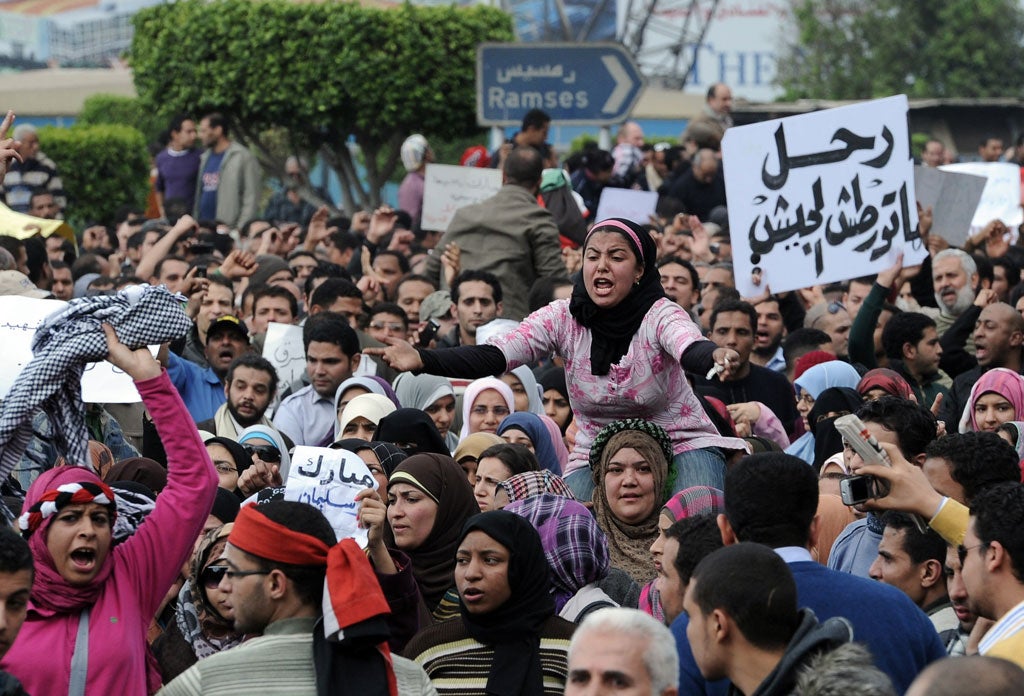
Your support helps us to tell the story
From reproductive rights to climate change to Big Tech, The Independent is on the ground when the story is developing. Whether it's investigating the financials of Elon Musk's pro-Trump PAC or producing our latest documentary, 'The A Word', which shines a light on the American women fighting for reproductive rights, we know how important it is to parse out the facts from the messaging.
At such a critical moment in US history, we need reporters on the ground. Your donation allows us to keep sending journalists to speak to both sides of the story.
The Independent is trusted by Americans across the entire political spectrum. And unlike many other quality news outlets, we choose not to lock Americans out of our reporting and analysis with paywalls. We believe quality journalism should be available to everyone, paid for by those who can afford it.
Your support makes all the difference.The bloody upheavals of the Arab Spring have handed a great boost to al-Qa'ida, providing it with fertile ground to reorganise and opportunities for British extremists to undergo terrorist training for attacks at home and abroad, the head of MI5 has warned.
The rebellions in the Middle East, Jonathan Evans, pictured, said, have allowed some members of the global Islamist network created by Osama bin Laden to find bases for exporting jihad. This, he said, was a "new and worrying development and could get worse as events unfold".
The rare public intervention by the director-general of the Security Service adds to the debate about the backing given by the UK, US and European states to opposition movements which have swept away regimes across the region. Critics suggest that it is hardline Muslim fundamentalists, inimically hostile to the West, rather than progressive groups, which have seized the reins of power in the aftermath.
Giving the Lord Mayor's annual Defence and Security lecture at London's Mansion House last night, Mr Evans said: "Today parts of the Arab world have once again become a permissive environment for al Qa'ida. This is the completion of a cycle – al-Qa'ida first moved to Afghanistan due to pressure in their Arab countries of origin. They moved to Pakistan after the fall of the Taliban; and now some are heading back home to the Arab World again. "A small number of British would-be jihadists are also making their way to Arab countries to seek training. Some will return and pose a threat here."
According to the Royal United Services Institute, the UK has faced 43 credible terrorist plots since 9/11, with one deemed to be extremely serious every year since then. Mr Evans said: "In back rooms and in cars and on the streets of this country there is no shortage of individuals talking about wanting to mount terrorist here." But he added that successful operations have meant "We are near to reaching a form of stalemate - they haven't stopped trying but we have got better at stopping them."
On the Arab Spring he added: "The Arab Spring offers the hope of a more pluralistic, democratic and flexible system. So we'll have to manage the short term risks if there is to be a longer-term reward."
M15's Evans also said his agency faced new types of undercover espionage. He said one London listed company has lost £800m through cyber attacks.
Join our commenting forum
Join thought-provoking conversations, follow other Independent readers and see their replies
Comments